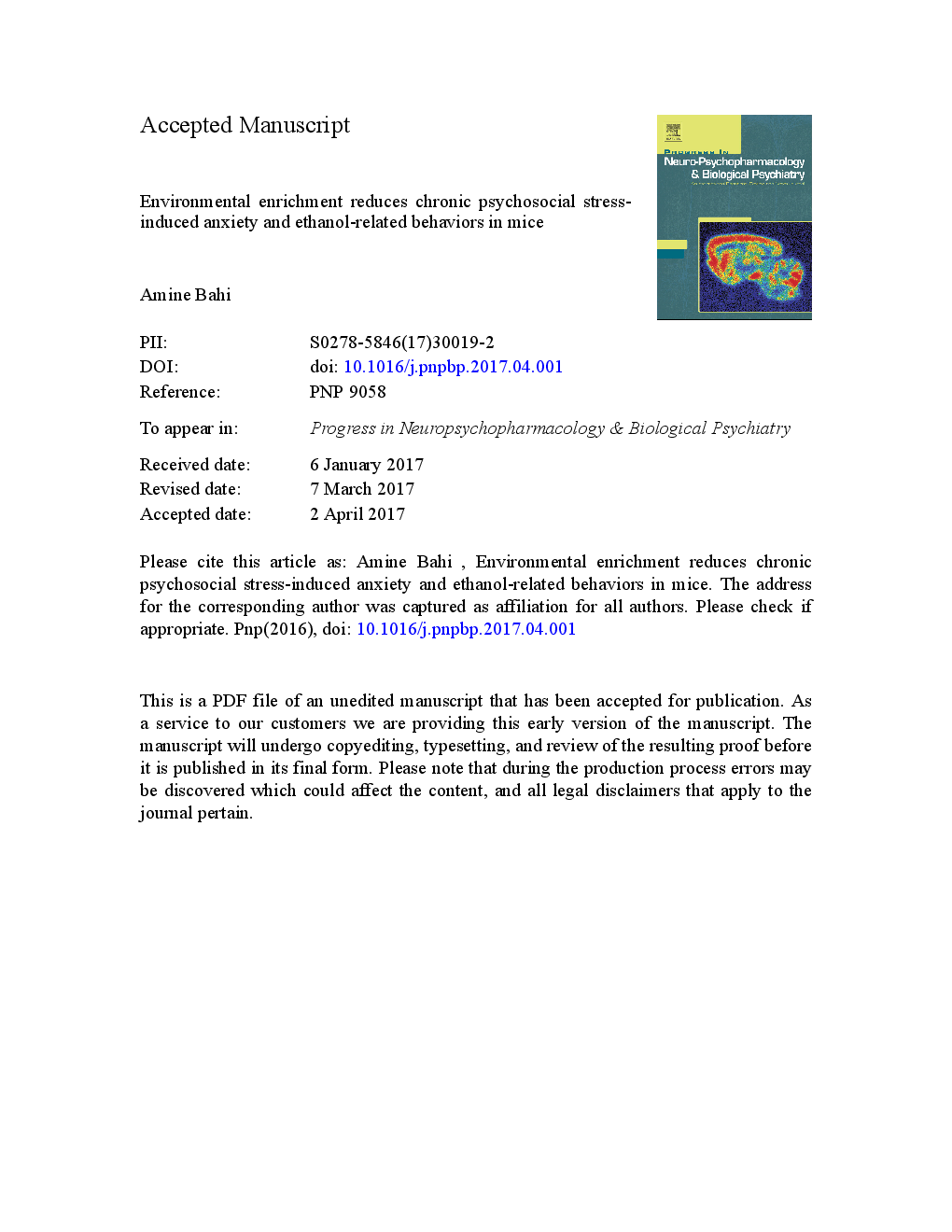ترجمه فارسی عنوان مقاله
غنی سازی محیطی باعث کاهش اضطراب ناشی از استرس مزمن روانی و رفتارهای مربوط به اتانول در موش می شود
عنوان انگلیسی
Environmental enrichment reduces chronic psychosocial stress-induced anxiety and ethanol-related behaviors in mice
| کد مقاله | سال انتشار | تعداد صفحات مقاله انگلیسی |
|---|---|---|
| 127829 | 2017 | 44 صفحه PDF |
منبع

Publisher : Elsevier - Science Direct (الزویر - ساینس دایرکت)
Journal : Progress in Neuro-Psychopharmacology and Biological Psychiatry, Volume 77, 3 July 2017, Pages 65-74

